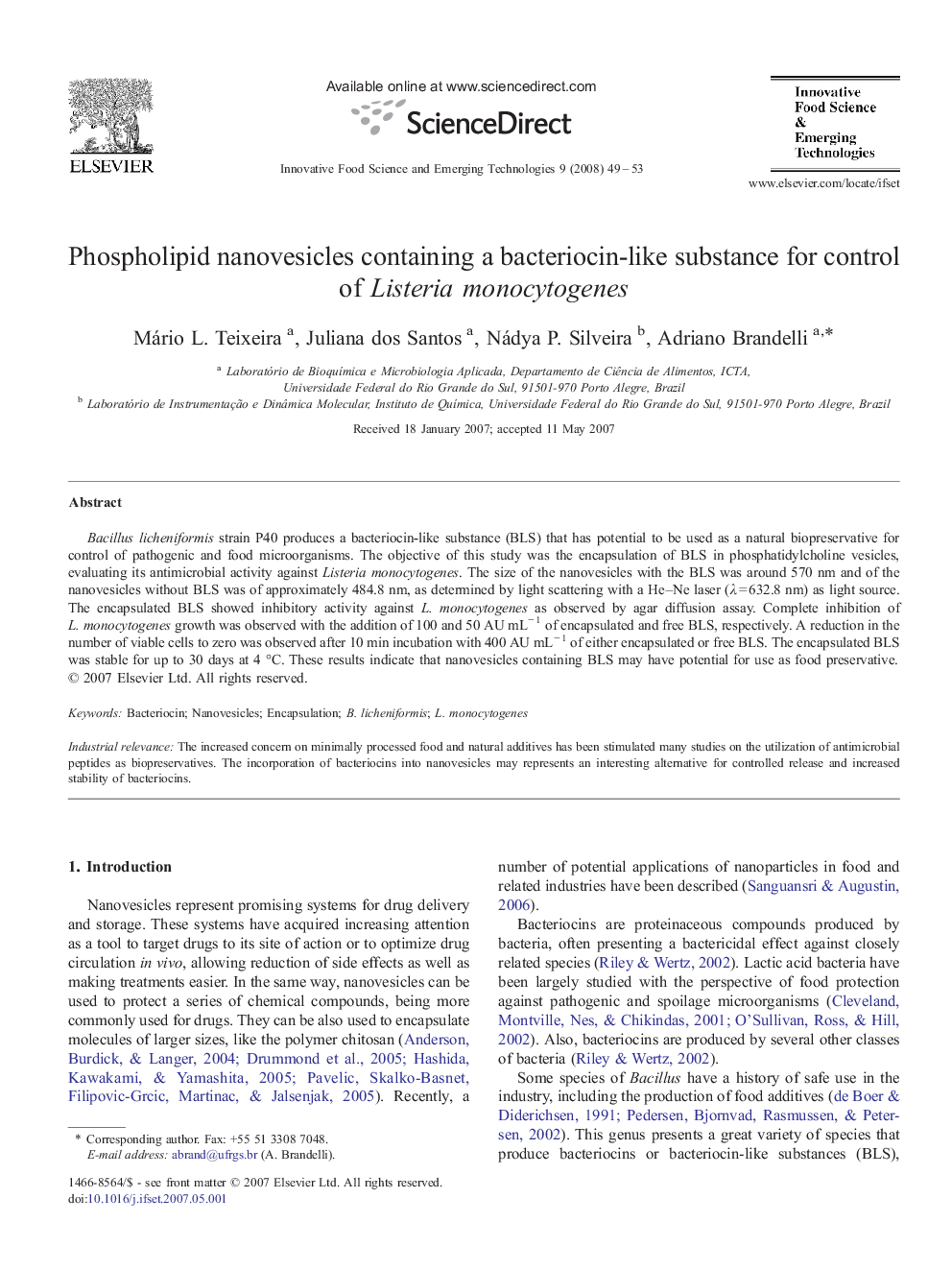| Article ID | Journal | Published Year | Pages | File Type |
|---|---|---|---|---|
| 2087474 | Innovative Food Science & Emerging Technologies | 2008 | 5 Pages |
Bacillus licheniformis strain P40 produces a bacteriocin-like substance (BLS) that has potential to be used as a natural biopreservative for control of pathogenic and food microorganisms. The objective of this study was the encapsulation of BLS in phosphatidylcholine vesicles, evaluating its antimicrobial activity against Listeria monocytogenes. The size of the nanovesicles with the BLS was around 570 nm and of the nanovesicles without BLS was of approximately 484.8 nm, as determined by light scattering with a He–Ne laser (λ = 632.8 nm) as light source. The encapsulated BLS showed inhibitory activity against L. monocytogenes as observed by agar diffusion assay. Complete inhibition of L. monocytogenes growth was observed with the addition of 100 and 50 AU mL− 1 of encapsulated and free BLS, respectively. A reduction in the number of viable cells to zero was observed after 10 min incubation with 400 AU mL− 1 of either encapsulated or free BLS. The encapsulated BLS was stable for up to 30 days at 4 °C. These results indicate that nanovesicles containing BLS may have potential for use as food preservative.Industrial relevanceThe increased concern on minimally processed food and natural additives has been stimulated many studies on the utilization of antimicrobial peptides as biopreservatives. The incorporation of bacteriocins into nanovesicles may represents an interesting alternative for controlled release and increased stability of bacteriocins.
